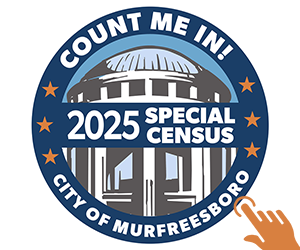Nashville, TN - Let’s suppose Governor Bill Lee has the votes for his universal voucher bill. In that case, he will likely convene a special legislative session in the final week of January to advance his private school voucher bill. His latest proposal seeks to allocate $7,075 per student in Tennessee for private school attendance while providing financial aid to local school districts. The fiscal note will likely increase rapidly if no caps or limits are in place, like a similar program in Arizona. [ https://azmirror.com/2023/12/1
Despite polling from various organizations or universities, school vouchers have consistently failed to pass when subjected to a popular vote in 2024 [ https://www.usatoday.com/story
"School choice" is a popular concept in various forms. In fact, over a quarter of students no longer attend traditional public schools, and this number continues to grow. According to Tulane Professor Doug Harris [ https://edworkingpapers.com/ai
It is concerning when Governor Lee does not clearly explain his universal voucher proposal when discussing his latest initiative. Many politicians use this tactic to mislead the public purposely. As a result, the conversation surrounding universal vouchers does not align with state criteria for evaluating other public education policies or the values expressed by supporters of vouchers. Recipients of vouchers in the current ESA pilot project [ https://newschannel9.com/news/
Tennessee taxpayers must understand that most of the funding under the new proposal will be directed toward children already enrolled in private schools. Private schools across Tennessee have a maximum of three to four thousand open seats. This indicates that the primary goal is not actually to improve public schools.
Universal voucher programs have been criticized for their lack of transparency and accountability. Many detractors, including some conservatives, argue that an actual free market requires parents to have access to information about schools' backgrounds and performance history to make informed choices.
Parents should make informed decisions to ensure their child is educated to their full potential. The voucher program proposed by Governor Lee raises concerns. It does not require voucher schools to undergo vetting, which supporters say compromises their standards and oversight.
Consequently, parents may enroll their children in schools without a proven track record or fundamental legitimacy, including those operating from unconventional locations. The minimal requirements and the absence of transparency and accountability measures are particularly alarming, especially since these institutions will receive public funding.
Prominent conservative voices, such as Michael J. Petrilli [ https://fordhaminstitute.org/a
Many conservatives in Tennessee also suggest waiting for President Trump’s tax break proposal, which would offer tax credits to those who donate to private school scholarship funds, rather than pursuing new voucher legislation. This plan would not provide direct federal funding to private schools.
There are some excellent private schools across the state. However, the perception that all private schools are superior arises from their selective admissions, rejection, and expulsion policies rather than the actual quality of the classroom educational environment.
This situation highlights a double standard: private school parents can engage in public school governance. At the same time, public school parents will encounter barriers in accessing information about private institutions that will also benefit from public funds. Board meetings are not open to the public. For parents to fully experience education freedom, any legislative proposal must include robust transparency and accountability for taxpayer dollars.
Last session's attempt to pass a universal voucher bill failed due to difficulties reconciling different proposals. Sam Stockard from the Tennessee Lookout points out [ https://tennesseelookout.com/2
We have seen Governor Lee’s political advertisement [ https://www.wkrn.com/news/tenn
Policymakers should openly share their decision-making processes, including how they plan to allocate taxpayer funds and disclose political contributions to taxpayers. They need to represent their constituents' views and engage in discussions that support public education [https://codes.findlaw.com/tn/t
JC Bowman is the Executive Director of Professional Educators of Tennessee, a non-partisan teacher association headquartered in Nashville, Tennessee. Permission to reprint in whole or in part is hereby granted, provided that the author and the association are properly cited.
